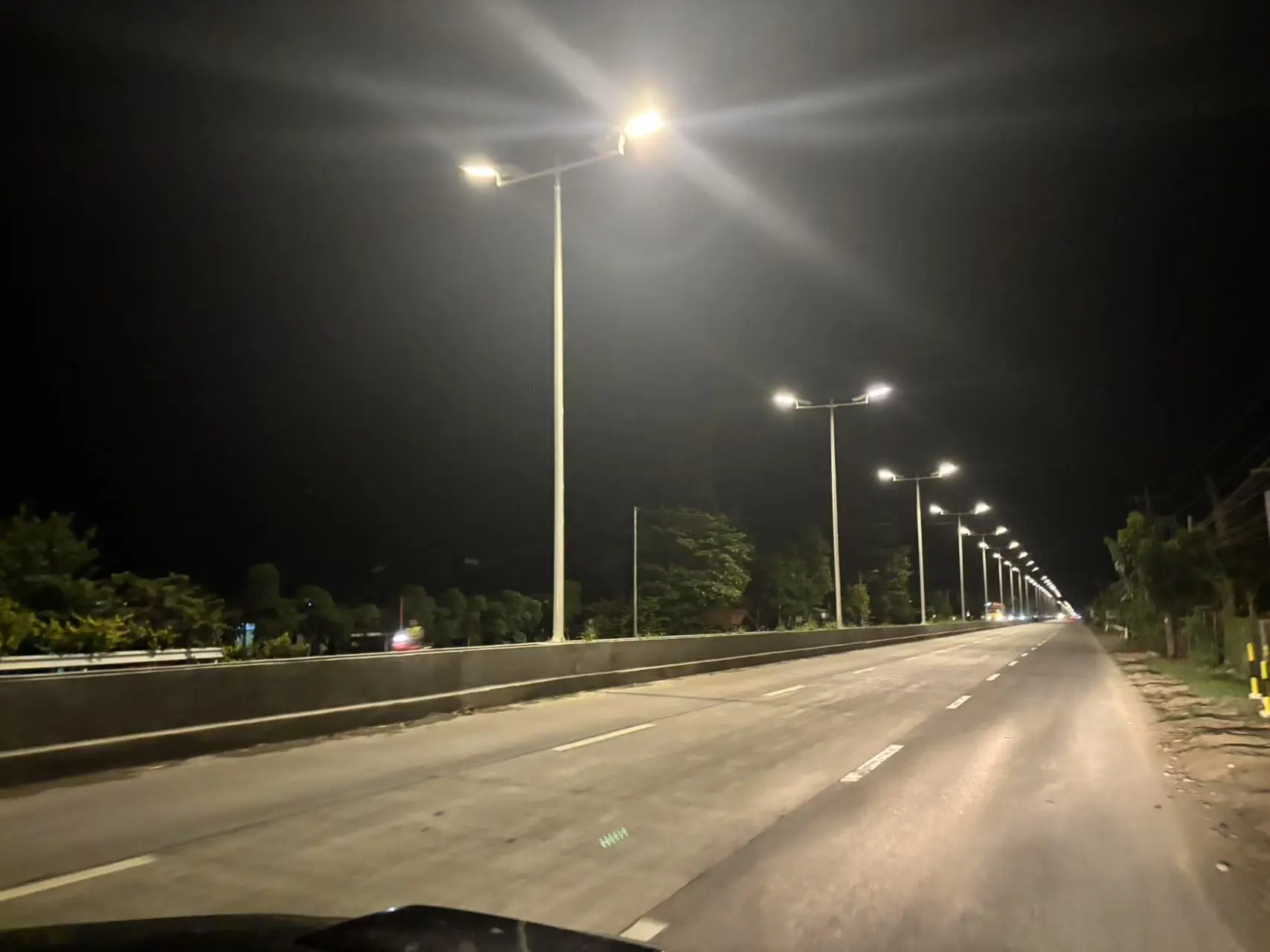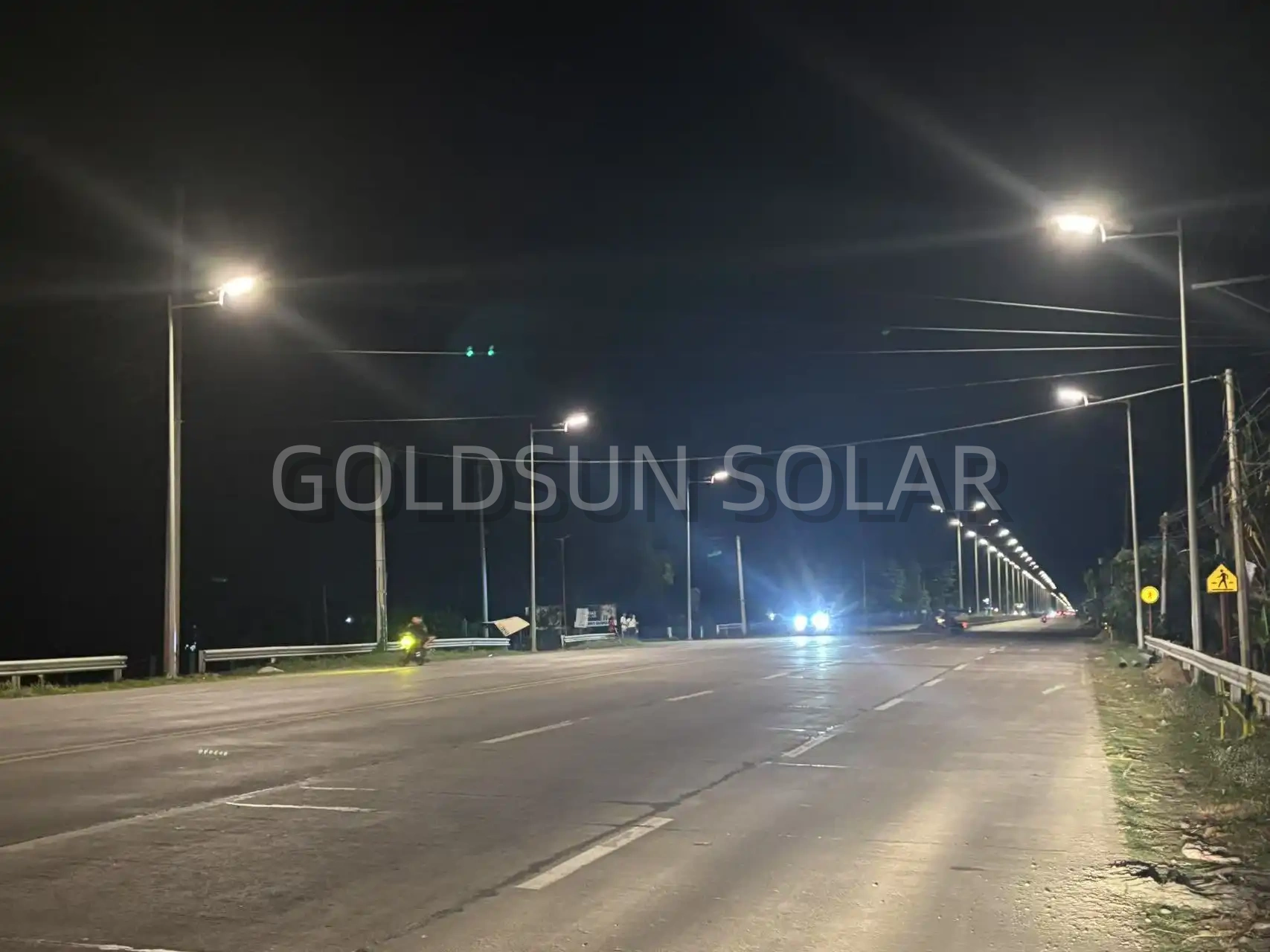5 Key Factors to Evaluate Solar Street Light Suppliers
Selecting the right solar street light supplier is crucial for the success of your outdoor lighting project. With numerous suppliers offering various products with different specifications and price points, it's important to evaluate key factors to make an informed decision that meets your requirements and budget.

How Do You Identify Reliable Solar Street Light Suppliers?
Identifying reliable solar street light suppliers requires research and evaluation of factors that indicate a company's credibility and commitment to quality.
Track Record and Experience in the Industry
A supplier's history in the solar lighting industry demonstrates their reliability and expertise. Look for solar street light suppliers with at least 5-10 years of experience who have adapted to technological changes and refined their products. Review their case studies and project portfolios to assess their capability to handle projects similar to yours. Check testimonials from previous clients for insights into a supplier's performance and after-sales service. Suppliers who participate in industry associations and trade shows typically stay updated with the latest advancements in solar lighting technology.
Certification and Compliance with Industry Standards
Reputable solar street light suppliers maintain strict quality control and ensure their products comply with relevant standards. Prioritize suppliers whose products have certifications such as ISO 9001, CE marking, UL certification, and RoHS compliance. These certifications verify that the solar street lights have undergone testing and meet specific safety and performance requirements. Also consider whether the suppliers themselves hold certifications related to environmental management (ISO 14001) or occupational health and safety (ISO 45001). Ensure potential suppliers can provide products that comply with local regulations and lighting standards.
Customer Support and After-Sales Service
The relationship with solar street light suppliers extends beyond the initial purchase. Evaluate the warranty coverage offered, typically ranging from 3 to 10 years for different components. Assess the supplier's responsiveness and availability for technical support. Consider whether they provide installation guidance, maintenance manuals, and training for your technical staff. Check their spare parts availability and replacement policies, as timely access to components can reduce downtime. Some advanced suppliers offer remote monitoring services to proactively identify potential issues. A supplier with a structured after-sales service system demonstrates their commitment to customer satisfaction.
What Technical Specifications Should You Consider When Choosing Solar Street Light Suppliers?
Understanding technical specifications allows you to compare offerings from different solar street light suppliers effectively.
Solar Panel Efficiency and Battery Performance
Solar panel efficiency impacts energy harvesting capability. Quality suppliers offer panels with conversion efficiencies between 18% and 22%. Inquire about the type of solar cells used, as monocrystalline panels generally provide the highest efficiency. Examine the panel's power rating relative to the light's energy requirements and the installation location's solar radiation levels. For batteries, lithium-ion technology has largely replaced lead-acid due to longer lifespan and better performance in extreme temperatures. Look for suppliers that specify battery capacity and provide information about expected battery life cycles. Ask about the battery management system that protects from overcharging and temperature extremes.
LED Quality and Lighting Performance
The LED component determines brightness, efficiency, and lifespan. Pay attention to luminous efficacy (lumens per watt), with premium suppliers offering LEDs with efficacies of 160-200 lumens per watt. Consider color temperature preferences, with most outdoor applications using neutral white (4000K) or cool white (5000K-6000K) LEDs. Assess whether suppliers offer appropriate light distribution patterns for your specific application. Investigate the LED's rated lifespan (typically 50,000 to 100,000 hours for quality products) and lumen maintenance factors. Advanced features may include automated dimming capabilities based on motion detection or pre-programmed schedules.
Weather Resistance and Durability Features
Solar street lights are constantly exposed to environmental elements. Premium suppliers manufacture fixtures with high ingress protection (IP) ratings, typically IP65 to IP68, indicating excellent resistance against dust and water penetration. Look for impact resistance ratings (IK rating) of IK08 or higher for protection against vandalism. Quality suppliers use corrosion-resistant materials such as anodized aluminum or stainless steel for structural components. For installations in extreme weather regions, verify that suppliers design their products to function reliably within a wide temperature range, typically from -40°C to +70°C.
How to Evaluate the Cost-Effectiveness of Solar Street Light Suppliers?
Assessing cost-effectiveness requires consideration of long-term operational costs and the supplier's ability to provide customized solutions.
Total Cost of Ownership Analysis
Look beyond the upfront purchase price to consider the total cost of ownership (TCO) throughout the operational lifetime (15-25 years). High-quality solar street light suppliers may command premium prices but often deliver significant savings in operational costs. Calculate expected maintenance frequency and associated costs based on the supplier's specifications. Energy savings represent a significant advantage of solar street lights over conventional grid-connected alternatives. Factor in potential costs related to system reliability—downtime can incur indirect expenses through compromised safety or operational functionality.
Customization Options and Project-Specific Solutions
Experienced solar street light suppliers offer customization across multiple parameters, including solar panel capacity, battery storage, pole height, and LED power. This flexibility allows for right-sizing the system components to match your specific needs. During evaluation, provide potential suppliers with detailed information about your project's location, lighting requirements, and budget constraints. Some suppliers offer modular system designs that facilitate future upgrades as needs change, providing long-term value by extending the useful life of the infrastructure investment.
Warranty Terms and Performance Guarantees
Standard warranty periods typically range from 2 to 10 years, with different components often covered for varying durations. Beyond warranty duration, examine what conditions are actually covered. Quality solar street light suppliers offer warranties that guarantee minimum performance levels throughout the covered period, such as battery capacity retention or LED lumen maintenance. Inquire about the warranty claim process, typical resolution timeframe, and who bears responsibility for removal and reinstallation costs.
Conclusion
Selecting the right solar street light supplier requires careful consideration of reliability indicators, technical specifications, and cost-effectiveness factors. By thoroughly evaluating track records, certifications, customer support, product specifications, and warranty terms, you can identify suppliers who offer high-quality, durable lighting solutions tailored to your specific needs. Yangzhou Goldsun Solar Energy Co., Ltd. is a trusted manufacturer of high-quality solar street lights, with a production capacity ranging from 10,000 to 13,500 sets annually. Our products meet international standards, including ISO9001, CE, RoHS, SGS, and IEC 62133 certifications. We have successfully completed over 500 solar street light installations in more than 100 countries, including projects with UNDP, UNOPS, and IOM. Our solar lights come with a 5-year warranty and can be customized to meet your specific needs. OEM support is available, along with fast delivery and reliable packaging. For more information, email us at solar@gdsolarlight.com.
References
1. Johnson, R. & Smith, K. (2023). Sustainable Urban Lighting: Evaluating Solar Street Light Technologies and Suppliers. Journal of Renewable Energy Applications, 45(3), 112-128.
2. Ahmed, M., Williams, P., & Chen, L. (2022). Quality Standards for Solar-Powered Street Lighting Systems: A Comprehensive Guide for Project Developers. International Journal of Sustainable Infrastructure, 18(2), 75-91.
3. Thompson, J. & Patel, S. (2023). Cost-Benefit Analysis of Solar Street Lighting: A 10-Year Case Study Across Three Continents. Renewable Energy Economics Review, 37(4), 203-219.
4. Lin, H., Garcia, M., & Anderson, T. (2024). Technical Performance Evaluation of Commercial Solar Street Light Systems in Variable Climate Conditions. Solar Energy Engineering and Technology, 29(1), 42-58.
5. Martinez, E. & Kumar, R. (2023). Procurement Guidelines for Municipal Solar Lighting Projects: Supplier Selection Criteria and Best Practices. Public Infrastructure Management Journal, 15(3), 167-182.
6. Wilson, D., Brown, A., & Nakamura, T. (2024). Durability and Maintenance Requirements of Solar-Powered Street Lights: A Comparative Analysis of Leading Suppliers. Journal of Sustainable Urban Technologies, 12(2), 95-111.


Yangzhou Goldsun Solar Energy Co.,Ltd.
